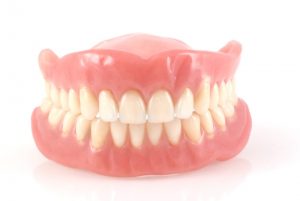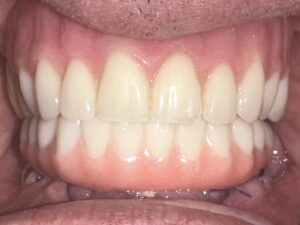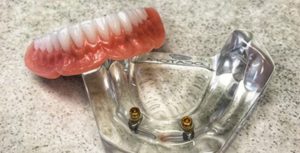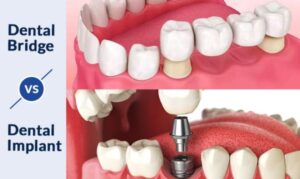Losing teeth can significantly impact one’s life, affecting not only appearance but also overall oral health. Fortunately, modern dentistry offers various solutions to bring back your smile and restore your confidence. In this blog post, we’ll explore the world of dentures, including types, benefits, costs, and more, so you can make an informed decision about your dental care.
Key Takeaways
- Dentures are removable dental appliances designed to replace missing teeth and restore oral health.
- Different types of dentures offer unique benefits, with costs varying based on complexity and materials used.
- Alternatives such as bridges and implants can provide improved stability or longevity compared to dentures, depending on individual needs.
Understanding Dentures: A Comprehensive Overview

Dentures are more than just artificial teeth; they play a vital role in restoring a person’s smile and oral health. Custom-crafted to suit an individual’s oral cavity, dentures come in different types, offering patients the opportunity to find the perfect fit for their needs. With proper care and maintenance, these dental appliances can last for years and help improve a person’s quality of life.
While some may be familiar with traditional complete or partial dentures, advances in dental technology have introduced implant-supported dentures, offering patients more options than ever before. This comprehensive overview will navigate you through the world of dentures, emphasize the significance of replacing missing teeth, and guide you on what to consider when selecting the ideal solution.
What are Dentures?
Dentures are removable dental appliances designed to replace missing teeth and surrounding tissues. They can be made from various materials, including acrylic resin and metal, and are customized to fit the individual’s mouth perfectly. A denture is made to ensure a secure fit, and a denture adhesive may be used. Available in multiple types—complete dentures, partial dentures, and implant-supported dentures—each option serves a specific purpose, depending on the patient’s needs and the extent of tooth loss.
Complete dentures replace an entire arch of missing teeth, while partial dentures are designed to fit around remaining natural teeth. Immediate dentures, on the other hand, are worn directly after tooth extractions to maintain appearance during the healing period for both upper and lower teeth in the arches.
Regardless of the type, dentures aim to restore a person’s ability to eat, speak, and smile confidently, providing a natural-looking solution to tooth loss.
The Importance of Replacing Missing Teeth
Maintaining oral health and averting further complications necessitates the replacement of missing teeth. When teeth are missing, the consequences can include:
- Shifting of remaining teeth, causing strain and altering bite alignment
- Increased risk of tooth decay and gum disease due to food particles becoming trapped in the empty spaces
- Affecting facial appearance, with a lack of teeth leading to a prematurely aged look, including hollowed cheeks and creases around the mouth.
Prompt attention to tooth loss is necessary to prevent these issues. Dentures, whether complete, partial, or implant-supported, offer an effective solution for replacing missing teeth and preserving oral health. By restoring your smile, dentures can also improve self-confidence and overall well-being.
Types of Dentures: Finding the Right Fit for You
With various types of dentures available, finding the right fit for your needs can feel overwhelming. However, understanding the differences between complete dentures, partial dentures, and implant-supported dentures can help you make an informed decision. Each type serves a specific purpose and offers unique benefits, depending on the extent of tooth loss and individual preferences.
The subsequent sections will shed light on the unique characteristics of each denture type and the considerations when opting for the optimal solution for your dental needs. Armed with this knowledge, you’ll be better equipped to discuss your options with a dental professional and select the denture that’s right for you.
Complete Dentures
Complete dentures, also known as final denture, are full-coverage dental prosthetics designed to replace an entire arch of missing teeth. Full dentures function by resting on the gums and palate or lower jawbone ridge, providing support and stability. Permanent dentures come in various types, including conventional dentures placed 8-12 weeks after tooth extraction and immediate dentures that can be worn directly after the extraction procedure.
Ensuring the longevity and optimal condition of complete dentures requires appropriate care and maintenance. This includes:
- Daily cleaning with a soft-bristled brush and mild soap or denture cleaner
- Soaking overnight in a denture cleanser solution
- Regular dental check-ups and adjustments to maintain a comfortable and secure fit.
Partial Dentures
Partial dentures are dental appliances that replace one or more missing teeth, fitting harmoniously with your natural teeth and restoring the form and function of your jaw. They are an excellent option for individuals who still have some natural teeth remaining, as they provide support while filling in the gaps left by missing teeth. Partial dentures are removable, allowing for easy cleaning and maintenance.
An alternative to removable partial denture is the precision partial denture, which uses internal attachments instead of clasps to connect to adjacent crowns. This design offers a more natural and secure fit, as well as improved aesthetics. Similar to complete dentures, the longevity and effectiveness of partial dentures hinge on proper care and cleaning.
Implant-Supported Dentures
Implant-supported dentures, also known as implant dentures, offer a more stable and comfortable solution for those who may need additional security compared to traditional dentures. These dentures are anchored to dental implants, providing improved stability and a more natural biting experience. Implant-supported dentures are particularly beneficial for individuals who prefer a non-removable dental prosthesis or whose jawbone may not support conventional dentures.
While implant-supported dentures may require a more rigorous daily cleaning regimen, including flossing beneath the denture, the benefits of improved comfort, aesthetics, and functionality make them an attractive option for many patients.
Nevertheless, a consultation with a dental professional is crucial to ascertain if implant-supported dentures suit your specific needs.
The Cost of Dentures: What to Expect
Several factors can cause the cost of dentures to fluctuate, including:
- The type of dentures (complete or partial)
- The materials used
- The number of missing teeth
- The complexity of the denture
For instance, complete dentures generally cost more than partial dentures. Additionally, the choice of materials and required treatments can also impact pricing. It’s essential to discuss these factors with a dental professional to determine the most suitable option for your needs and budget.
Beyond the cost of the denture itself, other expenses like initial consultations, adjustments, and maintenance should also be taken into account. Dental insurance may cover at least some portion of denture treatment, depending on the type of plan and coverage limitations.
Factors Influencing Denture Costs
Several factors can influence the cost of dentures, including the complexity of the denture, the materials used, and the design and fabrication process. Dentures can be made from various materials, such as acrylic resin, metal, and combinations of the two, which can affect the overall cost. The number of missing teeth and the extent of tooth loss can also impact pricing, with more extensive tooth loss requiring larger and more expensive dentures.
In addition to these factors, the choice of dental professional and their experience, as well as the geographic location of the dental practice, can also play a role in determining the cost of dentures. Obtaining quotes from multiple dental professionals and comparing their offerings is a crucial step in making an informed decision about your denture treatment.
Insurance and Denture Coverage
Insurance coverage for dentures can vary depending on the specific dental insurance plan and provider. Some plans may cover a percentage of the cost, while others may offer a flat amount or reimbursement for a certain type of denture. It’s essential to review your insurance policy and discuss coverage options with your dental professional to ensure you’re making the most of your benefits.
Alongside understanding your insurance coverage, considering the differences between in-network and out-of-network dentists is also important. In-network dentists have a contract with the insurance provider, which may result in lower out-of-pocket costs for you. In contrast, out-of-network dentists don’t have a contract with the insurance provider, and costs can vary more widely. Be sure to verify whether your chosen dental professional is in-network or out-of-network before committing to denture treatment.
Caring for Your Dentures: Tips and Tricks
Proper care and maintenance of dentures are essential to ensure their longevity and maintain oral health. By following a few simple tips and tricks, you can keep your dentures in optimal condition, avoid discomfort, and enjoy a confident smile for years to come.
The subsequent sections will elucidate the appropriate cleaning and maintenance techniques for dentures, and why removing dentures at night is pivotal for gum recovery. By implementing these best practices, you can prolong the life of your dentures and maintain a healthy, beautiful smile.
Cleaning and Maintenance
To ensure the longevity of your dentures and maintain oral health, it’s essential to clean them daily with a soft-bristled toothbrush and a mild soap or denture cleaner. This regular cleaning will help remove food particles, plaque, and bacteria that can lead to bad breath, gum disease, and other oral health issues. Be sure to clean all surfaces of the dentures, including the parts that come into contact with your gums and other soft tissues.
Beyond daily cleaning, soaking your dentures overnight in cold water or a denture cleaning solution is also crucial. This soaking process helps prevent the dentures from drying out and warping, ensuring they maintain their shape and fit comfortably in your mouth.
By following these cleaning and maintenance guidelines, you can keep your dentures looking and functioning their best, ensuring you can confidently wear dentures every day.
Wearing Dentures at Night
While some dental professionals may recommend wearing dentures at night to maintain the shape of your mouth and jaw, it’s generally advised to remove them before going to bed. This allows your gums and other soft tissues to rest and recover, reducing the risk of irritation and discomfort.
Removing dentures at night also helps prevent the growth of bacteria and the development of infections.
Ensure a thorough cleaning of your dentures with a soft-bristled brush and mild soap or denture cleaner before removing them at night. Then, store the dentures in water or a denture cleaning solution to prevent them from drying out and warping.
By following these guidelines, you can make sure to maintain the comfort and longevity of your dentures, ensuring a healthy, confident smile and even restore your smile.
Alternatives to Dentures: Exploring Other Options
While dentures can be an effective solution for replacing missing teeth, they may not be the best option for everyone. For some individuals, alternatives such as dental bridges and implants may be more appropriate, offering a more permanent and stable solution for tooth loss. By understanding the pros and cons of each option, you can make an informed decision about the best treatment for your specific needs.
The subsequent sections delve into dental bridges and implants as alternatives to dentures, highlighting their benefits and potential shortcomings. This information will help you make an informed decision about the best course of action for restoring your smile and ensuring optimal oral health.
Dental Bridges
Dental bridges are fixed appliances designed to replace missing teeth by attaching artificial teeth to adjacent natural teeth. Unlike partial dentures, which are removable, dental bridges offer a more permanent solution for tooth loss. Bridges consist of two or more crowns affixed to the teeth on either side of the gap, with a synthetic tooth connecting these crowns and filling the empty space.
Unlike removable partial dentures, the primary advantage of dental bridges lies in their fixed nature, which provides improved stability and function. However, the suitability of dental bridges depends on the condition of the remaining teeth and their ability to support the bridge. Consulting with a dental professional is necessary to determine if a dental bridge suits your specific needs.
Dental Implants
Dental implants are another alternative to dentures, offering a stable and long-lasting foundation for artificial teeth without the need for crowns on adjacent teeth. Implants consist of a titanium post that is surgically implanted into the jawbone, providing a secure anchor for a crown that is affixed to the post. This process results in a more natural and comfortable fit, as well as improved functionality compared to traditional dentures.
While dental implants can be more expensive and require a longer healing period than dentures, they provide significant benefits in terms of comfort, aesthetics, and overall oral health. Similar to dental bridges, consulting with a dental professional is crucial to ascertain if dental implants are suitable for your specific needs and circumstances.
Summary
In conclusion, dentures offer a versatile and effective solution for replacing missing teeth and restoring oral health. With various types available, including complete, partial, and implant-supported dentures, individuals have options to find the perfect fit for their needs. Proper care and maintenance are essential to ensure the longevity and comfort of dentures, allowing you to smile with confidence. However, it’s important to explore all available options, such as dental bridges and implants, to ensure the best treatment for your specific needs. By consulting with a dentist in Rockville MD and considering the information provided in this blog post, you can make an informed decision and take the first step towards a healthier, happier smile.
Frequently Asked Questions
How much does dentures cost?
A complete set of mid-priced dentures typically costs between $2,000 and $10,000, with a single denture plate priced at $1500 to $5,000. This type of denture provides greater longevity and more natural appearance than lower-cost alternatives.
Can I remove all my teeth and get dentures?
It is possible to remove all your teeth and get dentures, though it’s advisable to speak with a dentist first to discuss your options.
How long does it take to get dentures after teeth are pulled?
It usually takes between six and eight weeks following tooth extraction for dentures to be placed, as the gum tissue must heal first.
Can I eat steak with dentures?
It’s possible to enjoy a properly prepared steak, even with dentures. As long as they fit correctly and are in good condition, there is no need to avoid steaks.
How long do denture teeth last?
On average, denture teeth last for 5-10 years. The American Dental Association recommends replacing them at this time for a proper fit and appearance, since denture teeth can wear down and stain faster than natural teeth. Replacing denture teeth is important for maintaining a proper fit and appearance. Over time, denture teeth can wear down and stain, making them look








